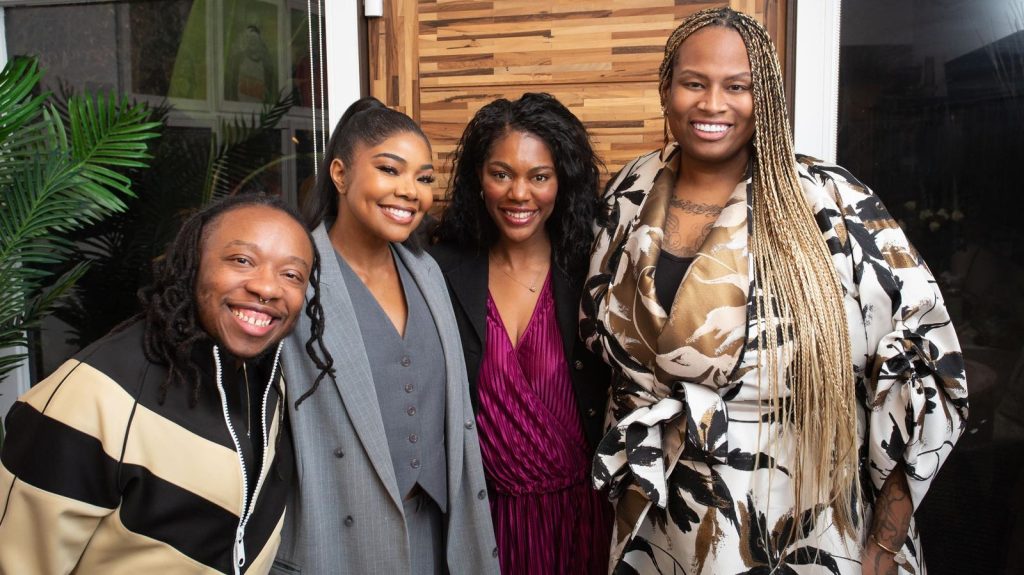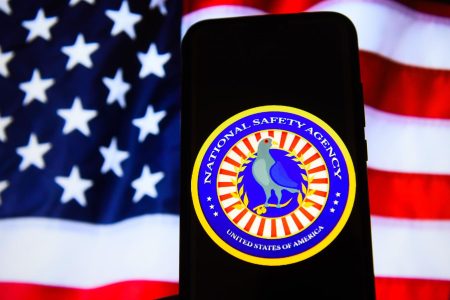For centuries, Black Americans have faced a myriad of systemic barriers, limiting their opportunities to own property, obtain quality education, and accumulate wealth. Surmounting insuperable obstacles, they continue amassing wealth at an impressive scale. Building on this momentum, recent policy reforms and grassroots initiatives are raising the bar on racial advocacy, unlocking new pathways for wealth creation and economic headway.
While these advances give cause for optimism, significant obstacles in transferring intergenerational wealth persist—demanding immediate redress. Despite Black households experiencing a 32% increase in net worth during the latter stages of the COVID-19 pandemic, they still possess only 4% of the wealth in stark contrast to the 80% held by white households. Moreover, the average inheritance for white households is typically 5.3 times larger than that received by Black beneficiaries. Considering that bequests account for 20-50% of wealth in U.S. households, reason for alarm. This disparity hints at an escalating wealth gap threatening to entrench socioeconomic divides across generations.
In what economists are calling, “The Great Wealth Transfer,” Baby Boomers and the Silent Generation are projected to pass down an additional $84.4 trillion in assets by 2043. Of that sum, $72.6 trillion will go directly to their immediate families, allocating the last $11.9 trillion to charity. Both generations have secured their financial future, with savings that comfortably surpass the cost of retirement and medical expenses. Regrettably, this is not the case for Black Americans who statistically face declining financial stability as they grow older. Despite a generally grim prospect for halting the erosion of Black wealth in a single generation, one community is steadfastly countering this trend.
Spearheaded by venture capitalists B. Pagels-Minor and La Keisha Landrum Pierre, The Black Wealth Salon (TBWS) is fostering financial literacy, broadening social connections, and boosting economic growth among the Black populace. Their efforts are an impetus for economic resurgence and enduring legacies. Recognizing this precarious financial future for affluent Black earners, TBWS serves as a critical hub, offering education and networking opportunities that Pagels-Minor argues are essential for transforming short-term gains into sustainable wealth.
“Many affluent Black earners are facing destitution in their later years due to a lack of resources to safeguard and increase their wealth,” Pagels-Minor explained in a Monday morning interview with ForbesBLK. The distinguished strategist and startup advisor, who launched DVRGNT Ventures, started their remarkable journey along the rustic, red terrain of northern Mississippi. A dual alumnus of Duke and Northwestern University, Pagels-Minor, who identifies with they/them pronouns, has made history as the first openly transgender person to helm a venture capital firm. Despite this significant accomplishment, they consider their most profound ambition to be forging a meaningful legacy for their toddler.
“I aspire for my son to grasp that we are mere custodians of wealth, tasked with securing our family’s future while also contributing to our community,” expressed the Silicon Valley 40 under 40 awardee. They made TBWS entirely complimentary to embody this ethos of generosity. Inspired by the Dark Tower Salons hosted by A’Lelia Walker during the Harlem Renaissance, TBWS aims to capture the same sense of exhilarating innovation that defined a transformative epoch. Such an undertaking would of course require razor-sharp execution. As a self-styled dreamer and visionary, Pagels-Minor understood that scaling their vision with utmost effectiveness required the world-class operational expertise of Landrum Pierre.
The Harvard and Loyola Marymount alumna co-founded Emmeline Ventures, a Los Angeles-based early-stage venture capital fund, where she serves as Managing Director, focusing on investments in healthcare, fintech and sustainability led by female entrepreneurs. “To effectively narrow the wealth divide, we must persist in backing women and BIPOC entrepreneurs,” Landrum Pierre conveyed to ForbesBLK. “True success is rooted in fostering robust communities that provide both emotional and economic support.”
Collaborating with renowned entities like Google, Bloomberg Philanthropies, and the MacArthur Foundation on initiatives enhancing civic participation, Landrum Pierre embodies the spirit of cooperative innovation. She first encountered Pagels-Minor at an Emmeline Ventures-sponsored brunch at Blackbird Collective during LA Tech Week. It was also there that they both met D’Angela Proctor, who would later host their inaugural salon at her private residence. Proctor is the proprietor of Undaunted Content, a Los Angeles-based production and consulting outfit. Transitioning from law and media executive roles, she has a repertoire that includes “Keyshia Cole: This is My Story” for Lifetime, in addition to partnerships with Netflix, Hulu, OWN, and Hallmark. Her current mission extends to promoting narratives of financial autonomy and cultivating generational prosperity.
“During the pandemic, I immersed myself in the world of venture capital by joining Cohort IV of BLCK VC and attending events,” she shared with ForbesBLK. “I’m now an active part of the Los Angeles VC community, leveraging storytelling as a means to raise capital.” Proctor, formerly CEO of Justin Baldoni’s Wayfarer Entertainment, steered the company to earn more than 25 social impact awards. At Lionsgate’s Codeblack Films, she directed Production & Business Development, and as Head of Original Programming at TV One, she redefined the network, securing seven NAACP Image Awards and a GLAAD Media Award. Her storytelling prowess, reflecting her capital-raising acumen, suggests her continued success is imminent. Powerhouses like Proctor are a testament to the caliber of thought leaders and innovators TBWS attracts, creating a nexus for connection and change.
Prior to the salon’s premiere, Pagels-Minor and Landrum Pierre composed a guest list of notables from varied industries. On the day, a hospitable reception greeted attendees, complete with exquisite appetizers and refreshing drinks—setting the stage for immediate networking. Shortly into the event, attendees were delighted by the arrival of the evening’s special guest, the acclaimed actress, producer, author and entrepreneur Gabrielle Union. In a fireside chat lasting an hour, Union sat with Pagels-Minor, renewing a connection first made via Instagram in 2021. Pagels-Minor, speaking with ForbesBLK, expressed gratitude for Union’s unwavering support during a difficult moment noting, “She’s been an anchor for me.” With a deep understanding of Union-Wade’s approach to wealth accumulation, Pagels-Minor was certain she would enrich the salon’s discussions. “Stories like Gabrielle’s are the cornerstone of The Black Wealth Salon—her tenacious advocacy for herself and others are exactly what we stand for.”
The dialogue between the two honed in on grasping one’s value, negotiating effectively, and practicing financial transparency among Black creatives to reinforce unity. Union-Wade also underscored the necessity of collaboration as a cornerstone for innovative progress. Post-panel, participants gathered for a dining experience courtesy of Miko Lorenzo of VitaBowl. Attendees articulated their top insights, sought support for actionable goals, and detailed their personal accountability plans. Reflecting on past financial hardships, Proctor emphasized the importance of a supportive cohort. “Nearly a decade ago, I invested a substantial six-figure sum in a venture that unfortunately didn’t pan out,” she confided to ForbesBLK. “That setback made me overly cautious, and I bypassed other opportunities for fear of experiencing another loss—a hesitance that has potentially cost me millions.”
Over the years, Proctor has recalibrated her investment strategies and views on wealth. Now embracing the intricacies of creating wealth, she still acknowledges the ongoing challenges of financial discourse. Studies reflect a much broader trend. Data from a 2022 Bank of America and Merrill survey show that only 53% of women felt at ease managing their investments. The study further highlighted that 22% tended to be excessively risk-averse, with 32% lacking the confidence in their knowledge to secure positive investment returns.
Landrum Pierre once harbored similar uncertainties. “Initially, I bought into the idea that the established financial elite were wiser,” she reflects. Recognizing the myths of meritocracy and the systematic barriers that undermine Black innovation and wealth was a turning point for her. “Acknowledging my own intellect and capability ignited a passionate drive that shaped the person I’ve become.”
Pagels-Minor views creating room for Black vulnerability as a path to healing and empowerment. They are convinced that beyond these vulnerabilities lies the potential for wealth on par with Fortune 500 leaders. Inspired by icons like Oprah Winfrey and Tyler Perry, their goal is to guide others to comparable peaks of achievement. “I’m convinced that hope can be a catalyst for triumph, and thats what La Keisha and I aim to offer those at TBWS,” asserts Pagels-Minor. They emphasize the critical nature of financial literacy as a staple in Black households, essential for the stewardship of intergenerational wealth.
Read the full article here










